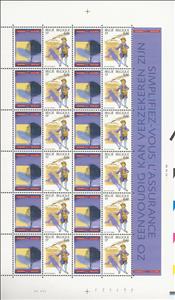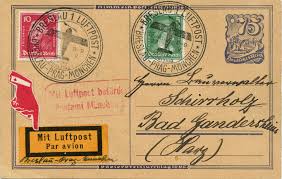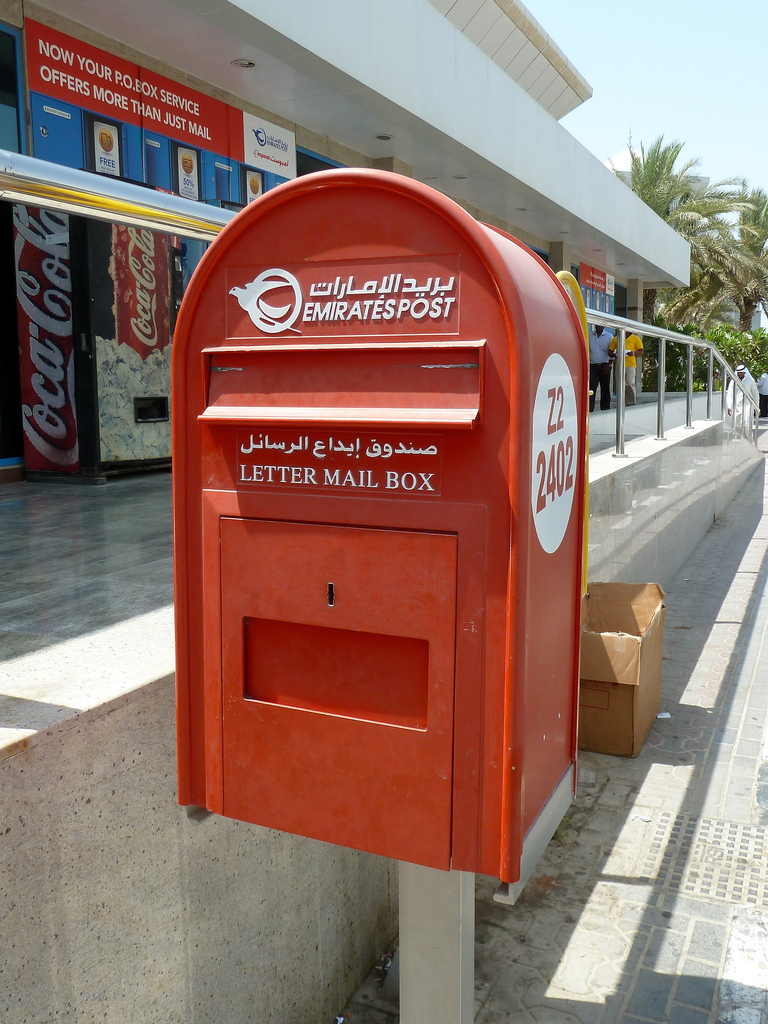Mini Sheet: Postman 18th Century without tab (Belgium 2001)
Postman 18th Century without tab (Belgium 2001)
09 June (Belgium ) within release Int. Stampexhibition BELGICA goes into circulation Mini Sheet Postman 18th Century without tab face value 12*17 Belgian franc
| Mini Sheet Postman 18th Century without tab in catalogues | |
|---|---|
| Belgium: | Bel: BE F2998 |
Mini Sheet is square format.
No Mi codeAlso in the issue Int. Stampexhibition BELGICA:
- Souvenir Sheet - Int. Stampexhibition BELGICA face value 150;
- Mini Sheet - Belgica 2001 - personalised face value 15*17;
- Stamp with Attached Label - Belgica 2001 - personalised face value 17;
- Mini Sheet - Postman 16th Century without tab face value 10*17;
- Mini Sheet - Postman 17th Century without tab face value 12*17;
- Mini Sheet - Postman 18th Century without tab face value 12*17;
- Mini Sheet - Postman 19th Century without tab face value 12*17;
- Stamp - Postman 20th Century + tab Vincindo face value 12*17;
- Stamp with Attached Label - Postman 20th Century + tab Vincindo face value 17;
- Stamp with Attached Label - Postman 20th Century + tab Vincindo face value 17;
- Stamp with Attached Label - Postman 20th Century + tab Vincindo face value 17;
- Stamp with Attached Label - Postman 20th Century + tab Vincindo face value 17;
- Stamp with Attached Label - Postman 20th Century + tab Vincindo face value 17;
- Stamp with Attached Label - Postman 20th Century + tab Vincindo face value 17;
- Stamp with Attached Label - Postman 20th Century + tab Vincindo face value 17;
- Stamp with Attached Label - Postman 20th Century + tab Vincindo face value 17;
- Stamp with Attached Label - Postman 20th Century + tab Vincindo face value 17;
- Stamp with Attached Label - Postman 20th Century + tab Vincindo face value 17;
- Stamp with Attached Label - Postman 20th Century + tab Vincindo face value 17;
Mini Sheet Postman 18th Century without tab it reflects the thematic directions:
Feathers are epidermal growths that form a distinctive outer covering, or plumage, on both avian (bird) and some non-avian dinosaurs and other archosaurs. They are the most complex integumentary structures found in vertebratesand a premier example of a complex evolutionary novelty.They are among the characteristics that distinguish the extant birds from other living groups
Postal history is the study of postal systems and how they operate and, or, the study of the use of postage stamps and covers and associated postal artifacts illustrating historical episodes in the development of postal systems. The term is attributed to Robson Lowe, a professional philatelist, stamp dealer and stamp auctioneer, who made the first organised study of the subject in the 1930s and described philatelists as "students of science", but postal historians as "students of humanity". More precisely, philatelists describe postal history as the study of rates, routes, markings, and means (of transport).
The mail or post is a system for physically transporting documents and other small packages; or, the postcards, letters, and parcels themselves. A postal service can be private or public, though many governments place restrictions on private systems. Since the mid-19th century national postal systems have generally been established as government monopolies with a fee on the article prepaid. Proof of payment is often in the form of adhesive postage stamps, but postage meters are also used for bulk mailing. Modern private postal systems are typically distinguished from national postal agencies by the names "courier" or "delivery service". Postal authorities often have functions other than transporting letters. In some countries, a postal, telegraph and telephone (PTT) service oversees the postal system, in addition to telephone and telegraph systems. Some countries' postal systems allow for savings accounts and handle applications for passports.
Originally, the term 'stationery' referred to all products sold by a stationer, whose name indicated that his book shop was on a fixed spot. This was usually somewhere near a university, and permanent, while medieval trading was mainly carried on by itinerant peddlers (including chapmen, who sold books) and others (such as farmers and craftsmen) at markets and fairs. It was a unique term used between the 13th and 15th centuries in the manuscript culture. Stationers' shops were places where books were bound, copied, and published. These shops often loaned books to nearby university students for a fee. The books were loaned out in sections, allowing students to study or copy them, and the only way to get the next part of the book was to return the previous section




